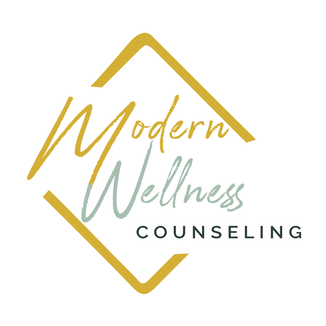What Forgiveness Is and Isn’t: Understanding the Journey to Healing
Forgiveness is a complex and often misunderstood concept that holds the key to emotional well-being and healthy relationships. It is vital to understand what forgiveness truly means and what it doesn’t.
This understanding can pave the way for personal growth and emotional healing. In this blog, we’ll explore the essence of forgiveness, dispel common myths, and highlight the transformative power of counseling and educational courses on forgiveness.

What Forgiveness Is: The Essence of Release
At its core, forgiveness is the intentional process of letting go of resentment and anger towards someone who has caused you harm. It does not imply that you excuse or condone the behavior; rather, it signifies a conscious choice to release the emotional burden associated with the offense.
Consider the story of James, a devoted husband who felt crushed when he discovered that his wife, Lisa, had been unfaithful. Initially, James was consumed with anger and heartbreak, convinced that he could never forgive her.
As he wallowed in pain, he realized that his bitterness was only causing him further suffering, preventing him from healing and moving forward.
James began to understand that forgiveness was not about excusing Lisa’s betrayal; it was about liberating himself from the shackles of resentment. He sought out counseling to work through his feelings.
With the help of a therapist, he explored his emotions, expressed his hurt, and gained insights into the complexities of human relationships.
Through this journey, James discovered that forgiveness could provide him with a sense of peace and allow him to reclaim his power. Ultimately, he chose to forgive Lisa—not for her sake, but for his own emotional freedom.

What Forgiveness Isn’t: Dispelling Common Myths
While forgiveness is a powerful act of self-liberation, several misconceptions can hinder individuals from embracing this process. Understanding what forgiveness isn’t can help clarify its true meaning.
Forgiveness Isn’t Forgetting:
One prevalent belief is that to forgive someone, you must forget the offense entirely. This notion is misleading. Forgiveness allows you to acknowledge the pain and learn from the experience without dwelling on it or allowing it to define your future interactions.
Forgiveness Isn’t Condoning:
Forgiving someone does not mean you approve of their behavior or that you believe it was acceptable. It’s essential to recognize that forgiveness is a personal choice and does not imply that the hurtful actions were justified.
Forgiveness Isn’t a One-Time Act:
Forgiveness is often a process that requires time, reflection, and sometimes repeated efforts. Emotions can resurface, and it may be necessary to revisit the decision to forgive multiple times before reaching a place of true healing.
Forgiveness Isn’t About the Offender:
Forgiveness is primarily about the person who was hurt. It’s a gift you give yourself rather than the offender. By forgiving, you free yourself from the shackles of bitterness and resentment, allowing for personal growth and emotional well-being.
The Importance of Counseling in the Forgiveness Journey
While understanding forgiveness is essential, navigating the emotional terrain of hurt can be challenging. Counseling can provide a safe space for individuals to explore their feelings and gain insights into the impact of unresolved grievances.
Therapists can help individuals understand the importance of forgiveness and guide them through the process. They can provide tools to facilitate open communication, enhance emotional awareness, and foster empathy toward oneself and others.
For instance, Maria, who faced betrayal from her close friend, sought counseling to work through her feelings of anger and hurt. With her therapist’s guidance, she learned about the difference between forgiveness and condoning behavior.
This understanding helped Maria find the strength to confront her friend and express her feelings, ultimately leading her to forgiveness and emotional relief.

Educational Courses on Forgiveness
In addition to counseling, educational courses on forgiveness can provide individuals with valuable tools and resources to understand and embrace the forgiveness process.
These online programs delve into the psychology of forgiveness, emotional healing, and practical strategies for applying forgiveness in daily life.
By engaging in such courses, individuals can deepen their understanding of forgiveness, and cultivate the skills necessary to navigate their emotional landscapes.
Forgiveness is a powerful act that allows individuals to release the emotional burden of hurt and resentment. Understanding what forgiveness is and isn’t is crucial for personal growth and healing. Through stories of resilience and emotional liberation, we see that forgiveness can transform lives.
As we navigate the complexities of relationships and emotions, let us remember that forgiveness is a journey worth undertaking. Whether through counseling or educational courses, we can gain the insights and tools necessary to embrace forgiveness and foster emotional well-being.
Get my must-have guide now!
This guide will give you 5 quick and easy steps to help you learn how to deliver a sincere apology to the people you care about!
Begin Online Couples Counseling in San Antonio, TX
Getting Scheduled:
Getting started with a therapist for online couples counseling is easy and convenient while in the comfort of your own home. You can schedule online through our Client Portal. If you are planning to use your insurance, please note that only a few clinicians accept limited insurance plans for Online Couples therapy.
You can give our office a call at 210-706-0392, and our intake coordinator can answer any questions you may have. If your insurance is accepted, we will get you scheduled and gather the needed insurance information.
What we need from you:
In order to get scheduled for online couples counseling, we will need the following from you, your full name, email address, and phone number. We do require you to make a $40 deposit to hold your intake session. This deposit goes toward your first session’s payment.
What to expect between scheduling and your session:
After you are scheduled, you will receive a link to your secured client portal. You will have documents to sign and complete 24 hours before your intake session. Ten minutes before your session, you will receive a secured link for your video call. You can use this link to join in on your online therapy session.
Other Therapy & Counseling Services at Modern Wellness Counseling
In addition to online couples counseling , learn more about our therapy and counseling services including premarital counseling, Online Therapy for Anxiety, and individual counseling, to help you thrive in relationships and life!
By: Priscilla Rodriguez, M.S., LMFT I specialize in working with couples and individuals to restore their relationships by utilizing research-based therapy techniques.
Feel free to look at the online services offered through Modern Wellness Counseling and check out the client portal to conveniently schedule your next appointment. Want to say “thank you”?




